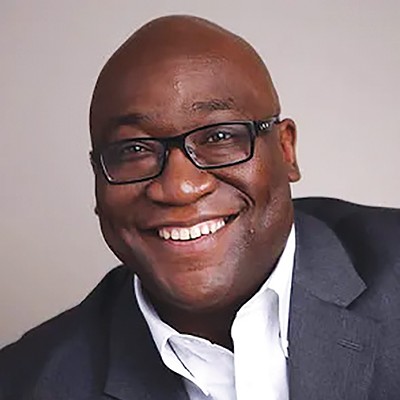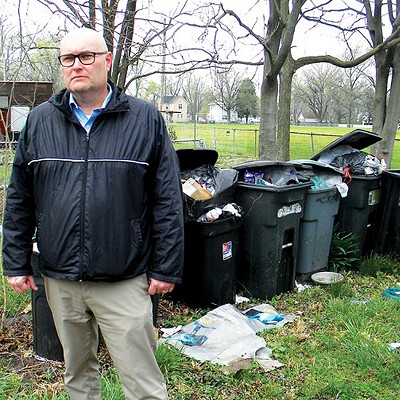Years ago, I asked a fellow reporter who covers politics and government: Can you think of anything that the state does well? Issuing driver’s licenses was the only thing that came to mind.
I’ve never had to wait more than 10 minutes. In Washington and Arizona, where I once lived, you immediately bought a Lotto ticket if you spent less than an hour renewing your license. Missouri was worse. This helps explain why Secretary of State Jesse White so easily won re-election last week. He got nearly 625,000 votes more than J.B. Pritzker, winning by 68 percent over Republican and Libertarian candidates and spending just $17,500 on advertising between July and Sept. 30, according to the most recent campaign finance reports. His yard signs were tougher to find than virtue in the White House.
White, 84, is a Chicago Democrat who takes contributions from trial lawyers, labor and automobile dealers who do tons of business with his office. Before the 2010 election, he said that he probably wouldn’t run again, and then he did. “Take it to the bank, this is it,” he said in 2015 when he vowed he wouldn’t seek re-election.
He used the same line this fall: “Take (it) to the bank, this is it.” he told the State Journal-Register during an editorial board meeting in which he acted every bit his age as he paused a few times in mid-sentence, as if he’d lost his train of thought. He’s oft flubbed up in the personnel department, giving jobs to relatives, hiring at least two felons, including a woman who stole more than $230,000 from Southern Illinois University, and hooking up a prison guard who resigned when the Department of Corrections substantiated allegations of custodial sexual misconduct involving an inmate.
And yet, White is the state’s most popular politician. It doesn’t matter what he says or does, or how many years he goes without debating an opponent – for the record, he last took a debate stage in 2002 -- White still wins in Sam McCann strongholds like Macoupin and Calhoun counties. On the surface, it makes no sense. Keeping lines short at the DMV -- is that all it takes? Apparently so.
The governor-elect and legislators should remember this as we race Michigan to become the first state in the Midwest to start selling pot to adults with ID and a few bucks in their pocket. In Michigan, where voters last week approved recreational pot by roughly the same margin that Pritzker won the governor's office, the state says it will take two years to get pot shops up and running.
We can do better than that.
There’s a ton of money at stake. Whichever Midwest state is first to go ganja stands to rake big bucks from folks, particularly white-collar types – remember that pot makes you paranoid – who’d rather drive a few miles and buy legally than pay black-market prices at the local bar, where cops may lurk and choices are limited, or nonexistent, particularly for edibles, tinctures and the like. Colorado, which is surrounded by states with virtually no people and ranks 21st in population, collected nearly $250 million in tax revenue from weed last year.
We’re way bigger than Colorado, and our tax haul would be bolstered by imbibers from Wisconsin, Missouri, Indiana and Kentucky, at least until surrounding states end prohibition and join the pot party. Legal weed won’t solve our fiscal issues, of course, but every $100 million helps. Now that we have a pro-weed governor-elect, the biggest problem would seem herding cats in the General Assembly.
Predictions of legislators balking at legal pot seem akin to hype about the recent attorney general’s race being tight right up until Election Day, when Kwame Raoul clobbered Erika Harold. There’s too much untaxed weed floating around already, and too much coin at stake. The challenge is creating, sooner rather than later, a sensible system to sell pot, which has long proven easy for college students. The legislature, however, has proven awful at figuring out how to sell and regulate medical marijuana.
Until August, you needed to be fingerprinted, pass a criminal background check, prove state residency, get a note from your doctor, pay a nonrefundable application fee and then wait, sometimes weeks, for the state to process your application. It’s easier now, but a card good for one year still costs $100. It took a judge to force the state to allow folks with PTSD to use medical marijuana. On the supply side, legislators created a near monopoly by allowing just eight growing operations, with the licensing process exempt from public records law and so cloaked in secrecy. At least three state agencies have a hand in regulating sales, production and distribution.
Jesse White, master that he is in issuing driver’s licenses and plates at light speed, surely can do better than the legislature. For one thing, folks seem to trust him. For another, he understands customer service. He knows how to collect money. And he also, likely, wouldn’t want the job, given that he’s said he opposes recreational pot, which is all the more reason to appoint him state marijuana czar – never let someone who says they want to be a drug dealer become a drug dealer. So, let’s just hand it over to White and let him figure out the details. We could all be stoned by the Fourth of July, and that wouldn’t necessarily be a bad thing.
Contact Bruce Rushton at [email protected].





















